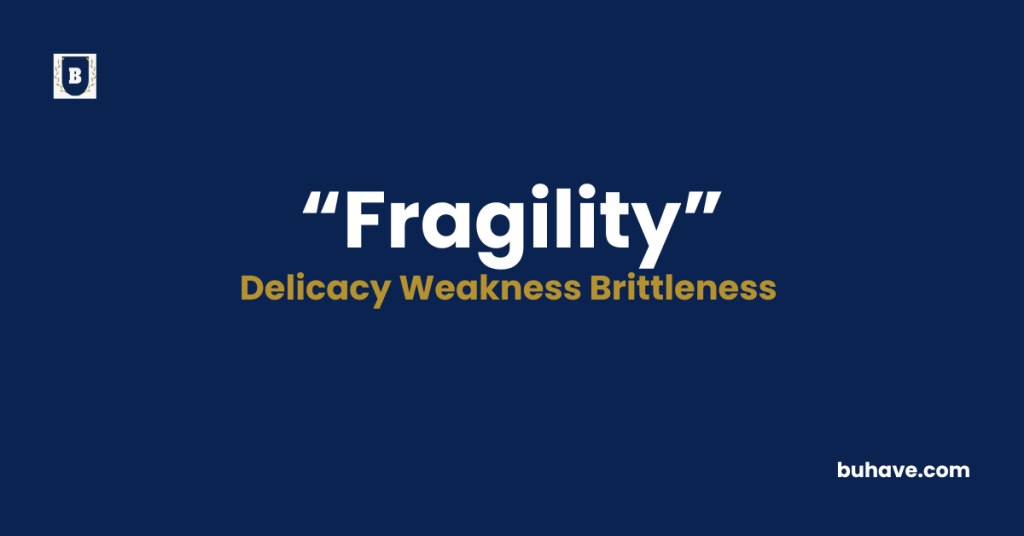The word Fragility (noun) refers to the quality of being easily broken, damaged, or vulnerable, both physically and emotionally. In this guide, you’ll learn the full definition, synonyms, antonyms, etymology, and real-life examples of how to use Fragility correctly in sentences.
Fragility Explained in Depth
A complete and detailed guide to the word Fragility including meaning, definition, examples, etymology, synonyms, and antonyms.
Meanings of Fragility
Fragility means the state or quality of being fragile—easily broken, damaged, or affected. It can refer to objects, people, relationships, or situations that lack strength, durability, or resilience.
Definition
Fragility refers to a condition in which something is vulnerable to breaking, failing, or deteriorating under stress, pressure, or minimal force. Physically, it may describe a glass vase that shatters easily or a person with a weakened immune system. Emotionally or mentally, fragility refers to a person’s sensitivity to stress, criticism, or trauma. It is also used metaphorically to describe systems, such as economic where small changes or disruptions can lead to collapse.
Social or relational might point to a dynamic where bonds are weak and easily strained. The term highlights a lack of resilience and implies the need for care, protection, or support. Fragility can be temporary or inherent, and it often calls for awareness and caution in interaction or handling.
Etymology
The word fragility originates from the Latin word fragilitas, meaning “brittleness” or “weakness,” which stems from fragilis meaning “easily broken.” This in turn is derived from the Latin verb frangere, which means “to break.” The word entered Middle English through Old French as in the 14th century. Over time, the term evolved to include not just physical brittleness but also emotional and systemic vulnerabilities.
Today, it carries broad implications in both literal and metaphorical contexts ranging from fragile ecosystems and economies to mental fragility and interpersonal relationships. The continued use of this word in healthcare, psychology, and social science underscores its significance in describing complex, sensitive conditions.
Example Sentences
- The fragility of the ancient vase made it difficult to transport safely.
- She spoke with great emotional fragility after the traumatic event.
Fragility Synonyms
- Delicacy
- Brittleness
- Weakness
- Vulnerability
- Sensitivity
- Instability
- Tenderness
- Susceptibility
- Feebleness
- Fineness
Fragility Antonyms
- Strength
- Resilience
- Sturdiness
- Durability
- Stability
- Robustness
- Hardiness
- Firmness
- Soundness
- Toughness
FAQs about Fragility
Here are some frequently asked questions (FAQs) about the word “Fragility”
1. What does “fragility” mean?
It refers to the state of being easily broken, damaged, or affected, either physically or emotionally.
2. Is fragility the same as vulnerability?
They are similar, but fragility often implies breakability or instability, while vulnerability means being open to harm or attack.
3. Can fragility be a strength?
In some contexts, recognizing and honoring one’s fragility can lead to deeper resilience, empathy, and self-awareness.

















